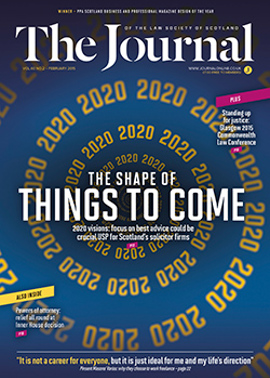Opinion: Waqqas Ashraf
The atrocious act of terror in Paris, condemned by all faiths and backgrounds, has opened up an interesting debate about freedom of expression.
It is perfectly acceptable to separate the killings from the rights and wrongs of Charlie Hebdo publishing cartoons of the Prophet Muhammad (PBUH).
There is no justification whatsoever for committing murder, and the Quran is perfectly clear, placing great value on the sanctity of life: “If you kill one person it’s as if you kill all of humanity” (Quran 5:32).
The question society faces today is whether the publishing and distribution of the cartoons is simply exercising one’s freedom of expression, or is it more than that? Is it offensive? Is it abusive? Is it illegal?
We must remember that freedom of expression has its limitations. If it did not, we would live in a society constantly complicit in inciting and spreading hate. Also, freedom of expression must be seen in the context it is being exercised in. Criminal law in Scotland generally recognises this.
At present, one would suggest that the simple publishing and distribution of the cartoons is lawful. The matter has not yet been tested in our criminal justice system, and society, along with lawmakers, has not yet recognised it to be deeply offensive. However, should the context of distribution be one which could be interpreted as more sinister, such as plastering the cartoons on the walls of mosques, this could be seen as a form of abuse open to Crown Office scrutiny.
Freedom of expression is fundamental to democracy. However this freedom, if abused, contradicts other equally fundamental principles of a healthy, democratic society, such as those designed to create a just and equal right to protection from incendiary material.
The principle of freedom of expression goes hand in hand with the principle of fairness. I would have to criticise France and its narrow interpretation of it, which is nothing short of hypocritical. A country where women are forbidden to wear what they want; people are forbidden to deny the Holocaust because it causes distress to the Jewish community, and forbidden to protest freely in support of Palestine and Gaza; but it is deemed perfectly acceptable to publish cartoons which clearly cause great distress to the Muslim community.
In Scotland, we have seen freedom of expression curtailed slightly, and in some cases rightly so. Over the past decade or two, the law has further protected our citizens of all backgrounds from abuse. It is clear that it will not accept blatant abuse being classified as freedom of speech.
The essential ingredient to protect minorities and groups from abuse is an understanding of that minority and group. Ignorance fosters distrust, which manifests itself in a number of ways. Whereas society once deemed it acceptable to call Pakistanis by the P word, it was through dialogue with that race group that it became clear that use of the word is nothing but abusive. So is it time that we as a society sit with our Muslim friends to discuss this matter? I think so.
Across the world, 1.8 billion Muslims hold the character of Prophet Muhammad (PBUH) central to their whole system of belief. For 1.8 billion the Prophet represents Islam and its values.
Charlie Hebdo creates cartoons which are pornographically obscene insults to the Prophet, and by extension to 1.8 billion people who attempt to follow his life and values on a daily basis. The whole purpose of the images is to further marginalise, divide and endanger those parts of the community that are already alienated.
I do not generally believe it should be illegal to offend or insult, but there have to be strong protections against publicly humiliating or denigrating a person based on their religion or race.
We have all witnessed the wide ranging responses to what happened in Paris. Many of my friends on social media, colleagues and even politicians joined many others in posting cartoons of the Prophet in the aftermath of the acts of terror. A blindfolded show of defiance that we shall not be beaten by the terrorists, I suppose. What many fail to recognise is that by doing so, you are playing right into their hands, posting cartoons knowing that the other 1.8 billion Muslims find them offensive, causing further division and separation between our communities – this, my friends, is what the terrorists want.
For the sake of social peace, can we stop publishing and distributing offensive cartoons and can we encourage understanding one another’s faith and beliefs instead?
In this issue
- Supreme Courts: the US and UK compared
- Taking farmers to market
- Queuing up for Street Law
- Cash for your body
- Ivor Guild: an appreciation
- Reading for pleasure
- Journal magazine index 2014
- Opinion: Waqqas Ashraf
- Book reviews
- Profile
- President's column
- More benefits from development plan approval
- People on the move
- On track for 1 April
- In five years' time...
- Glasgow 2015: the three Rs
- Powers of attorney: the Inner House decides
- Freelancing goes mainstream
- Socially acceptable?
- Searching questions
- Separation and the stored embryo
- Effect, not cause: is obesity a disability?
- Goodbye to the Lamborghini?
- Scottish Solicitors Discipline Tribunal
- The dispute resolvers
- Take care with Lender Exchange
- Law reform roundup
- From the Brussels office
- Equal pay: a professional imperative
- Are you a cyber risk?
- Ask Ash
- Property in the spotlight
- Sweet smell of added value
- Legally IT: the evolving lawyer






